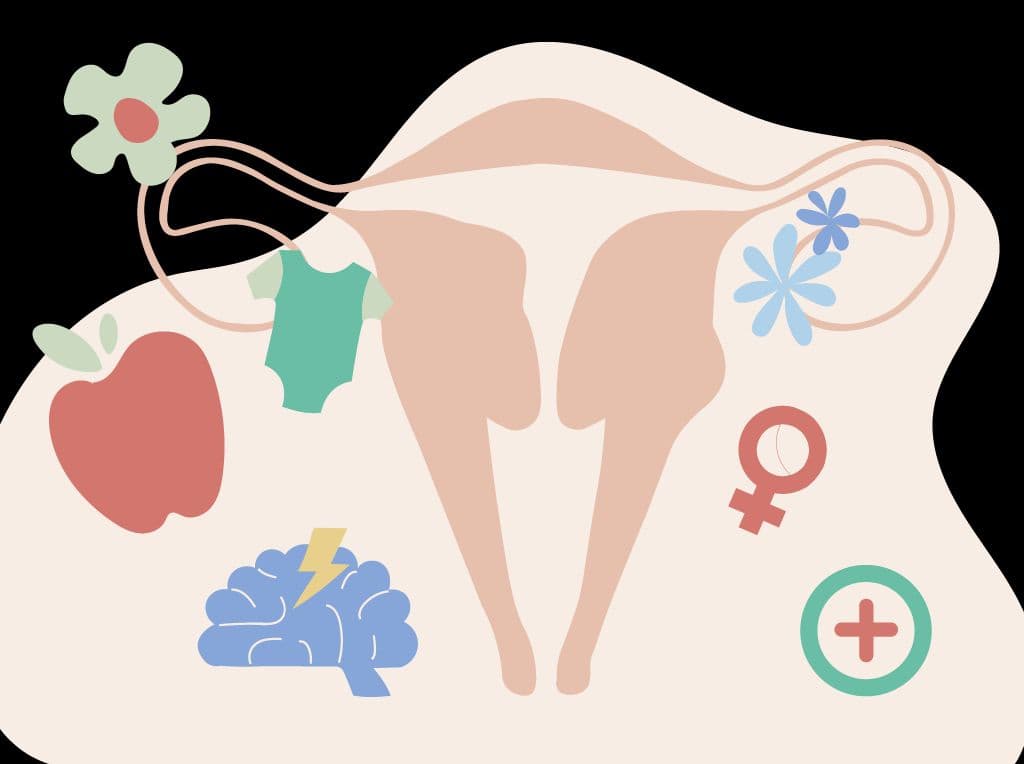This blog has been medically verified by Dr. Renuka Dangare
With egg freezing, you can choose both! With more and more women opting to delay their family planning owing to late marriages, career growth and other factors, their biological clock ultimately catches up to them. Egg freezing can be a potential solution for such a case.
What is egg freezing?
Egg freezing, or mature oocyte cryopreservation, is a method of harvesting unfertilized eggs from the ovaries and stored for later use. It provides an option for women who do not wish to get pregnant immediately but at some point in future, and want to preserve their ability to get pregnant.
Why is egg freezing done?
We all know that as women age, the quality and quantity of their eggs decreases. Egg freezing extends the window of conception and pregnancy for those women that don’t wish to or cannot conceive at present. Egg freezing might be considered in the following circumstances:
- If you’re thinking of having kids at a later date or if you don’t know whether you’re ready just yet, egg freezing is a viable alternative.
- Cancers and therapy : Certain cancer treatments that include radiation and chemotherapy can permanently harm your ovaries and impact fertility.. Women in such cases can freeze their eggs before the treatment to conceive at a later stage in life.
- Other reasons - Some health conditions like sickle cell anemia or autoimmune diseases such as lupus adversely impact fertility. In such cases, women can try egg freezing to help in conception later.
How is egg freezing done?
Before egg freezing is carried out, there will be preliminary tests to check for a woman’s ovarian reserve and any infectious diseases such as HIV, Hepatitis B or C.
- Synthetic hormones are prescribed to stimulate the ovaries to produce multiple eggs in a cycle. The eggs are ready to retrieve usually after 10 to 14 days.
- Next step is egg retrieval, which is carried out under sedation. The doctor takes a look at the ovaries by using a vaginal ultrasound probe and guides a needle through the vagina into the follicle to retrieve the egg. They repeat this procedure until they have received a sufficient number of eggs.
- After retrieval, the eggs are frozen to sub zero temperatures and preserved for future use.
How many eggs should I freeze to guarantee a baby in future?
- There is no magic number of eggs that should be frozen for a guaranteed pregnancy in future. Various factors come into play such as the egg quality, which decreases with age, and implantation issues.
- However, it is recommended that to maximise the chances of getting pregnant, at least 15-20 eggs should be frozen for women aged less than 35 years and at least 25-30 eggs for women aged between 35 to 40 years.
Is egg freezing painful?
While you will be sedated during the process, you may experience some soreness and discomfort afterwards.
Fertility medication used to induce ovulation can often lead to bloating and cramping, as it leads the ovaries to working overtime. Rarely, it could lead to ovarian hyperstimulation syndrome (OHSS) causing ovaries to become painful and swollen.
What happens when I decide to get pregnant?
When you decide to get pregnant, the frozen eggs are thawed and then fertilized with a sperm in the lab to be implanted into the uterus. The sperm used in the process can either be a partner’s sperm or donor sperm depending on the patient's preference.
The fertilization can happen through:
In Vitro Fertilization (IVF): The doctor can retrieve the sperm samples from the partner and then put the eggs and sperms in a petri-dish to fertilize on their own. The resulting embryo is then transferred into your or the surrogate’s uterus.
Intracytoplasmic Sperm Injection (ICSI): ICSI is a specialised version of IVF treatment, in which one sperm is directly injected into the egg to maximize the chances of fertilization. It is used in cases of severe male infertility. The resulting embryo is then transferred into your or the surrogate’s uterus.
Advantages of egg freezing :
- It is a safe and advanced technology; better than ever before.
- In certain medical conditions like endometriosis, low ovarian reserve, fibroids, cancer or family history of early menopause, this procedure is a ray of hope.
- Treatments like chemotherapy and radiation therapy may cause harm to the fertility.
- It is advantageous for those women who want to pursue careers or higher studies before adding on the responsibility of kids. It helps them to keep motherhood as a future decision without worrying about the biological clock.
- It also provides an option for those women who want to be biological parents at an advanced age either themselves if possible or by using surrogacy.
- Its an added advantage for new age women who don't want to settle for less and want to have kids only with the right person.
Risks of egg freezing :
- While egg freezing helps you relieve the anxiety of having the option to preserve your fertility for future, it does not mean it will guarantee fertility forever. With age, the ability of your body to carry out a successful pregnancy also decreases. Also, all eggs will not have the ability to survive the thawing process and get fertilized.
- Usually 20s and early 30s is considered to be the optimal time to freeze eggs, when the ovarian reserve is normal. Post that the quality and quantity of eggs decrease and even egg freezing might not help with fertility preservation.
- The side effects of hormonal treatments given to harvest multiple eggs at a time can affect your ovaries and may be unpleasant to deal with. It can be an expensive procedure, considering the initial cost of retrieving and the consecutive yearly costs of preserving the eggs.
Some queries you might be wondering about:
- How long can the eggs remain frozen and remain fertile ? Past evidence has shown successful healthy pregnancies and babies even after 10-14 years of freezing.
- Does it require hospitalization to recover post egg retrieval procedure? Complete rest for an entire day following the procedure is usually recommended. Mild cramps, soreness pain is common which can be treated by medications, however hospitalization is not necessary. It takes a week for full recovery and going back to work.
- Does the procedure have any detrimental effect on my fertility or can lead to early menopause? No it has no detrimental effect on your fertility and does not lead to early menopause, as egg retrieval does not mean to ‘use up’ or to exhaust the existing egg reserve in your body.
- Is egg freezing a feasible option for me if I'm nearing 40 already ?
It is important to understand that a woman’s eggs will be lower in number and quality as she approaches 40. A woman who has chosen to freeze her eggs at a younger age is more likely to have a higher pregnancy rate compared to one that decides to freeze eggs at 40. Also given the fall in the number of eggs, one cycle of egg retrieval may not be enough for a woman around 40 years of age.
Embryo freezing, requires sperm to fertilize the egg before freezing, so
- If you are single.
- If you are unsure about your relationship status or the future prospect of your current partner.
Then in these cases, egg freezing is your answer.
To sum it up, egg freezing is a good progressive technology but it is not a perfect one. It is a double edged sword where it does extend your biological clock to some extent but it doesn't guarantee any outcome. As firstly, it can not prevent ageing and secondly, thawed eggs will lead to pregnancy is not a surety. Thus, making an informed choice only, will help you to lead a happy and fulfilling life.
This information is provided for educational purposes and should not be construed as medical advice. Please consult with your healthcare practitioners before undertaking any changes in your diet or adding supplements.
Proactive is a digital clinic for women, offering accessible, personalized, and confidential health-care solutions. We offer products and services for out-patient health concerns of Indian women, across their lifetime - from puberty to pregnancy to menopause. To know more on the sexual and reproductive health of women, visit https://www.proactiveforher.com/

